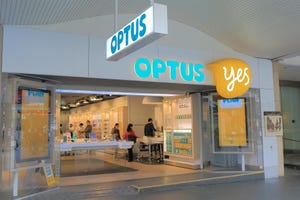Obama Signs CableCARD Death Warrant
President Obama formally ended the CableCARD mandate by signing into law the Satellite Television Extension and Localism Act Reauthorization (STELAR).

President Obama set an end date for the CableCARD mandate Thursday when he signed into law the Satellite Television Extension and Localism Act Reauthorization (STELAR).
Although STELAR is largely focused on allowing satellite operators to stream out-of-market broadcast TV signals to rural areas, it also includes a provision ending the requirement for cable providers to offer set-tops with separable security. The so-called CableCARD rule, which went into effect in 2007, will now expire on December 31, 2015.
By banning integrated security seven years ago, the Federal Communications Commission (FCC) hoped to create a competitive retail market for cable TV boxes. Unfortunately, the vast majority of CableCARD modules shipped to date have been embedded directly into operator-supplied set-tops. Few consumer electronics makers have created new CableCARD-compatible devices, and consumer demand for the security cards has been exceedingly minimal.
Instead of CableCARD products, consumer electronics makers have focused on developing IP-based media streamers for online video services. The decision by Congress and the President to end the integrated security ban acknowledges the fact that IP, not legacy TV technology supported by CableCARDs, represents the future of video. (See House Votes to Kill CableCARD Mandate.)
Get the latest updates on new video services and technologies by visiting Light Reading's video services content channel.
The one major exception to the failed CableCARD effort has been TiVo Inc. (Nasdaq: TIVO). The DVR pioneer continues to sell a popular line of set-tops that use CableCARDs to connect users to pay-TV services. However, even though TiVo fought hard to keep the CableCARD mandate in place, the company has simultaneously created new business opportunities for itself by working directly with cable operators.
As a result, a significant portion of TiVo's revenue now comes from the service provider channel. Plus, TiVo is even collaborating with Comcast Corp. (Nasdaq: CMCSA, CMCSK) on a security technology that could act as a CableCARD alternative. (See TiVo Makes More Cable Gains and Comcast, TiVo May Ditch the CableCARD.)
On the alternative-technology front, the pay-TV industry has been experimenting with downloadable security as a replacement for hardware-based security for years. Although progress has been slow, the FCC is ready to speed up the process by creating a new technical advisory committee to develop recommendations for software-based security solutions.
On the heels of STELAR, the FCC issued a notice yesterday asking for nominations to this new committee. The agency noted that the committee must be prepared to provide recommendations on downloadable security within nine months of STELAR being enacted -- i.e. three months before the CableCARD mandate is scheduled to end for good.
— Mari Silbey, special to Light Reading
About the Author(s)
You May Also Like












